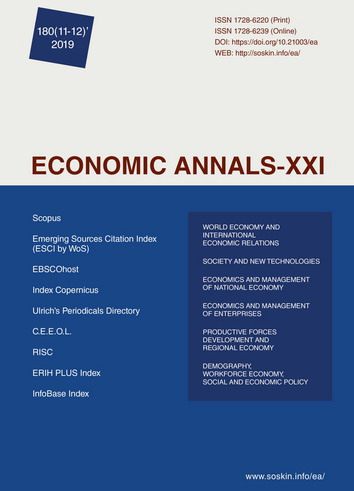Manipulative marketing technologies in new digital reality
Manipulative marketing technologies in new digital reality
Author(s): Vladimir Budanov, Irina AseevaSubject(s): Marketing / Advertising, ICT Information and Communications Technologies
Published by: Institute of Society Transformation
Keywords: Digital Marketing; Socio-Anthropological Risks; Clip Thinking; Banking Scoring; Screening; Manipulative Practices; Private Space; Ethics; Social Networks; Digital Reality; Big Data; Information;
Summary/Abstract: The spread of digital marketing technologies has become a global practice that significantly improves the quality of life and facilitates realization of individual consumer strategies. However, implementation of these technologies also has certain socio-anthropological risks which are discussed in the paper. Marketing manipulation can be very effective, sophisticated and implicit in digital reality which is stated on the basis of socio-anthropological and economic phenomena analysis. The authors offer to highlight the most significant social and anthropological threats caused by an active and often unethical use of digital technologies. The first threat is a real danger of person’s personal profile deformation, his cognitive and psycho-emotional abilities, partial dissociation of his identity and dominance of clip forms of thinking in digital tagging environment that often permeates an entire cyber-space. The second threat is digitalization of banking and trading sphere and their combining on the basis of scoring and screening interests. This happens when banks begin to collect information about the client base of potential borrowers not only on social networks but also on clients’ consumer basket in order to determine complete personal profile of a possible borrower. In such a way, more complete information is obtained using transaction data of payments by a bank card in cinemas, pharmacies, medical institutions, train stations. The authors outline that not only social and psychological profile but also problems of health, cultural and political preferences and other facts of personal life could be easily restored after an extended screening, violating ethical norms of invasion in private life of any person and can cause total control of citizens. Finally, the third risk is the possibility of personal data leakage from BIG DATA databases of large banks and trading networks, including details of private life or sale of this information by banks to other corporations, such as collecting agencies, in order to solve their problems. The social survey «Modern social technologies as a tool of identity management» was undertaken by the authors in 2019 to study the perception of manipulation by the citizens in Russia. In particular, the results of the survey show that 43.4% of the respondents are absolutely negative about personal database collecting based on the use of personal bank cards, and only 3.1% are positive. Answering to the question «How do you feel about the leakage and sale of your personal data from banks, shops, medical institutions?» 87.9% show negative emotional attitude, and only 3.5% - the positive one. The authors conclude that private data collected semi-legally through banking and marketing screening increasingly become a commodity, which cannot but cause a sense of protest and necessity for legal and ethical assessment and development of social and state regulators for harmonious development of digital marketing which serves citizens, not harms them, becoming a means of control and suppression of freedom.
Journal: Економічний часопис - ХХІ
- Issue Year: 180/2019
- Issue No: 11-12
- Page Range: 58-68
- Page Count: 11
- Language: English

